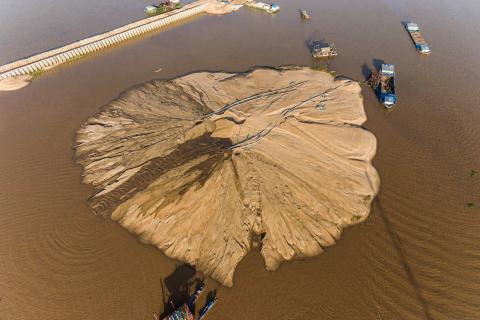China is pushing forward with plans to finance and construct new nuclear power plants in Pakistan, in direct violation of its obligations to the Nuclear Suppliers Group (NSG). Yet barely a whisper of protest has been heard. US officials have appeased their Indian friends by expressing 'concern' about recent deals. When it comes to nuclear non-proliferation, however, 'concern' is the diplomatic equivalent of a yawn.
China has a long history of cooperation with Pakistan on nuclear technology. Beijing sees the country as a useful counterweight to a nuclear India, and it was instrumental in the development of Pakistan's first two reactors, at Chashma in Punjab province.
China joined the NSG in 2004. Member states are subject to stringent rules on the export of nuclear technology and materials, which are intended to prevent the proliferation of nuclear weapons.
In 2010 a subsidiary of the China National Nuclear Corporation announced it would export technology to develop two additional reactors at Chashma. A number of countries, including the US, questioned China about the plans at subsequent NGS meetings. In 2011 the NSG turned a blind eye to the deal; China argued it was 'grandfathered' by previous contractual obligations at Chashma. Analysts saw the NSG move as a tacit recognition of China's acquiescence to an NSG guideline waiver proposed by the US for India two years earlier. Neither Pakistan nor India is a signatory to the Nuclear Non-Proliferation Treaty (NPT).
The NSG escaped with its credibility intact in 2011. But the past year has been a different story. [fold]
In November, Pakistan's prime minister Nawaz Shariz announced that China would build two indigenously developed reactors in Karachi. The deal is worth US$9.59 billion, and is part of broader Chinese plans to realise a self-developed nuclear supply chain. Unlike US actions for India, China did not approach the NSG for a waiver. The Karachi agreement falls well outside the scope of China's contractual obligations at Chashma, which is over a thousand kilometres away.
Industry insiders had been expecting the Karachi announcement for months. One told China Outlook Magazine back in August that:
It is completely illegal. As a member of the NSG, China should have respected the approval process…there are five nations already preparing to bring serious diplomatic consequences to China in international institutions.
So far China appears to have got away scot-free.
On 20 January the Wall Street Journal reported that Islamabad was in talks with China on a US$13 billion deal to build another three reactors at a new site in Punjab province. Again the NSG was in the dark.
Pakistan needs energy. Blackouts are common and energy demand is set to increase rapidly over the next decade. The US sees geothermal and hydropower as the solution. China thinks the answer is nuclear, which also ties in nicely with its goal of developing an export market for its reactors.
Both countries may be right. But blatantly ignoring the NSG in an unstable country that doubles as a jihadist stronghold is both irrational and dangerous.
